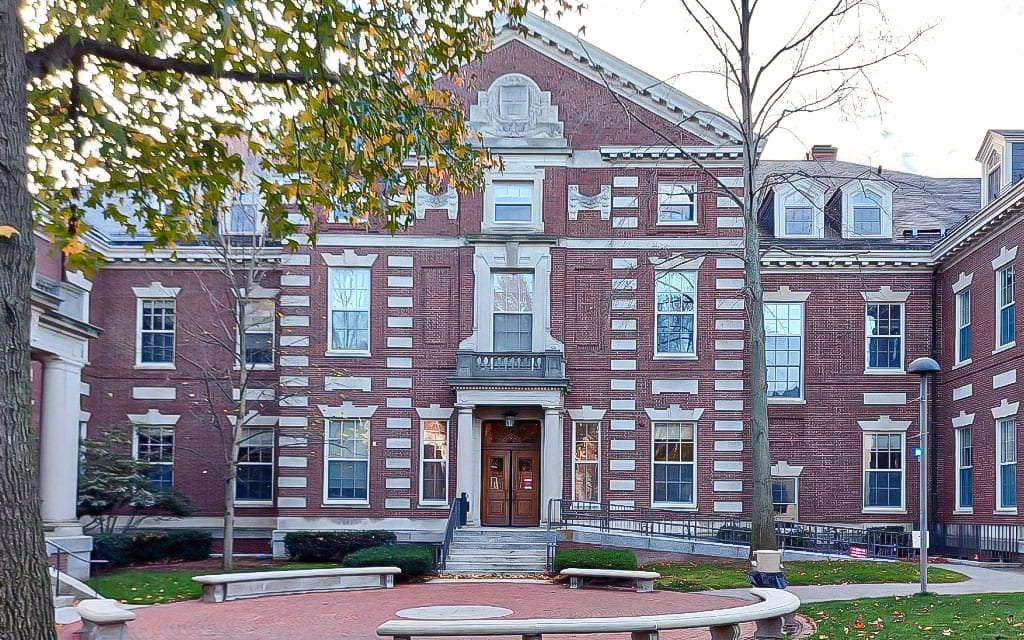
Recent News
Alumni Jonathan Karp and Allison Puglisi publish articles in “American Quarterly,” June 2025. Find them here.
PhD candidate Andrew Guerrero discusses his research about the evolution of the UCLA police department on the “Public Defenseless” podcast with Hunter Parnell. Listen here.
Recent graduate Jewel Pereyra wins the American Studies Association’s Ralph Henry Gabriel Prize for best dissertation titled “Afro-Filipina Aesthetics: Transnational Kinship Networks and Relational Performance.”
Faculty Member Julie Reuben writes on indoctrination in the classroom for The Chronicle.
Jewel Pereyra, current doctoral candidate, will be presenting Afro-Filipina Aesthetics: Transnational Sound Cultures and Dance Performances.
Hua Hsu, PhD ’08, wins the 2003 Pulitzer Prize in Memoir or Autobiography for his book Stay True.
Upcoming Events
Admissions Virtual Open House
Monday, November 10, 2025
4-5 pm EST
Meet with students and faculty and hear about the upcoming admissions cycle.
Email tstephens@fas.harvard.edu for Zoom link.
American Studies Dissertation Colloquium
Monday, May 5
9:00 am–1 pm
Thompson Room, Barker Center
“America” is vast. The “United States” is non-unified. These words name a geographical place (with borders that shift over time), a nexus of power, a set conjunction of cultures, an idea, and an ever-changing, ever-moving group of people. Because “America” exceeds standard categories of evidence, American Studies approaches it in interdisciplinary ways. Scholars in American Studies integrate disciplinary methods to grapple with big issues: environment and climate, labor, democracy, colonialism and empire, religion, capitalism, carcerality, indigeneity and migration, race and ethnicity, gender and sexuality, and much more. American Studies is problem-based: we train students to ask bold questions, to identify the right evidence to answer those questions, and to develop the methodological skills needed to analyze the evidence. American Studies cultivates a “both/and” perspective: we are capacious, nimble, politically engaged, sometimes contentious, often quirky, and always in process. We consider the U.S. in global context, and global forces within the U.S.
In Harvard’s American Studies doctoral program—the second-oldest in the nation—we unite around the goal of understanding how historical events and cultural acts of meaning-making affect each other.
How do we, at Harvard, practice American Studies? What characterizes our approach to the field?
1. We integrate methods from at least two disciplines.
Early in the doctoral program, each student in American Studies identifies at least two methods that will be primary to the dissertation research. The most common methods in our program are cultural analysis (of texts, images, performances, material objects, and more), archive-based historical analysis, and ethnography. Some students employ quantitative analysis, legal studies, archaeology, big data analysis, or other approaches.
Emphasizing a sense of responsibility and craft, American Studies students take courses that enable them to develop skills in their chosen methods. Many students earn an MA degree in a discipline en route to the PhD in American Studies. Our most frequently earned MA degrees are in English or History; students are also eligible to earn MA degrees in Sociology, Government, Anthropology, Music, and other departments. Many students deepen their skills by completing a Secondary Field.
Crucially, we integrate our disciplinary methods, infusing each with the other. Some classic works in American Studies analyzed literary works as forces for historical change; others performed close literary readings of historical artifacts. Contemporary scholars in the field draw from a larger methodological toolbox. One recent graduate in American Studies analyzed the cultural-political work of 1970s record albums through sonic studies, material culture studies, and Black feminist theory. Another used quantitative analysis to understand the historical relationship between slavery and capitalism. We cross-fertilize disciplines to innovate new approaches and produce new knowledge about America and the world.
2. We lead with archival research.
Harvard is uniquely rich in archives and museums. Our doctoral program partners with these repositories to provide our students with unrivaled opportunities for research and professional development. Our courses train students to conduct archival research, and some of our courses are integrated with these repositories. Many American Studies doctoral students work at Harvard’s archives and museums, and some graduates parlay this on-the-job training into careers in public history.
Of the many archives and museums at Harvard, one of the most important to our program is Radcliffe’s Schlesinger Library, which is widely considered the world’s best archival source on American women. Houghton Library has unparalleled resources in American printing, visual culture, theatre and performance, and more. Our students examine rare materials at the Baker Library of the Harvard Business School, the Harvard Divinity School Library, the Hiphop Archive and Research Institute, the Countway Library for health and biomedical sciences, Tozzer Library for anthropology and archaeology, and many other repositories. The Harvard Film Archive and the Loeb Music Library provide the evidence base for many dissertations. Harvard’s museums, too—from the Harvard Art Museums to the Ethelbert Cooper Gallery of African and African American Art to the Carpenter Center for the Visual Arts—are stunning resources that benefit our students’ dissertations, teaching, and careers.
3. Our graduates excel.
Harvard’s PhDs enter tenure-track jobs at almost three times the national average for programs in American Studies. Our recent graduates teach at the University of California at Berkeley, the University of Michigan—Ann Arbor, Harvard School of Law, the University of California-Irvine, Tufts University, the University of Texas at Austin, the University of Virginia, the University of Connecticut, Vassar College, Rutgers University, Dartmouth College, Boston College, Bard, CUNY Queens College, and elsewhere. Our students regularly win top fellowships and postdocs including from the Fulbright Foundation, the Ford Foundation, the Andrew W. Mellon Foundation, the Smithsonian, and many others. Beyond the academy, our graduates become museum curators, editors, directors of grants, ministers, and more. Our graduates publish books and other works that win top honors, including Pulitzer Prizes, the National Book Award, and the National Book Critics Circle Award. Across the United States and around the world, Harvard American Studies graduates are shaping conversations about the American past and the global future, the relationship between the stories we tell and the world we co-create, who we are and who we can become.